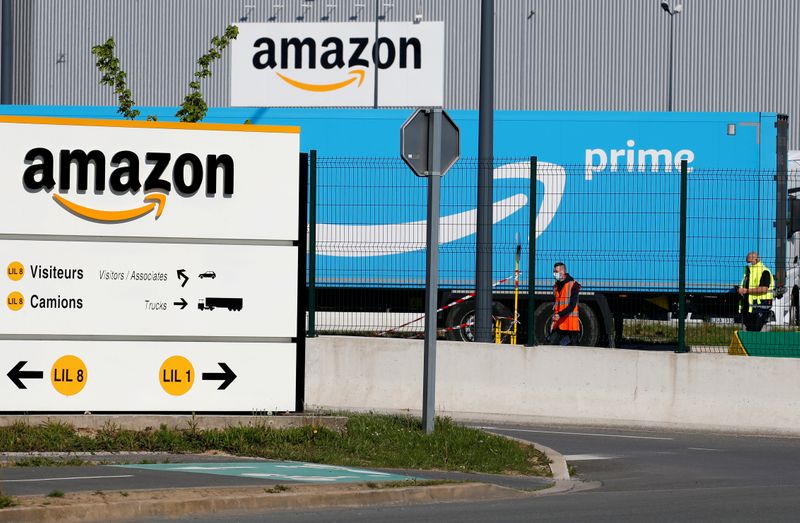By Lisa Baertlein and Akanksha Rana
(Reuters) - Investors' penchant for prioritizing growth over profit at Amazon.com Inc (NASDAQ:AMZN) will be put to the test on Thursday, when investors absorb the impact of second-quarter pandemic-related costs that could top $4 billion.
The world's biggest e-retailer - a relatively rare high-growth investment thanks to its lucrative cloud computing business - is in a position to gobble up market share as virus-weary shoppers shift purchasing online and business shutdowns hammer store-based retailers.
Still, some analysts question whether Amazon's stock can keep climbing from its current $3,000 level.
Shares are up 25% since April 30, when Amazon warned that expenses for COVID-19 testing and other safety and staffing measures could outpace surging revenue in the second quarter. At that time, the company forecast quarterly operating income of minus $1.5 billion to plus $1.5 billion. Amazon reported operating income of $3.1 billion in the year-earlier quarter.
"We recognize there is a high level of uncertainty on costs due to the pandemic, and therefore a higher risk of (Amazon) falling short" on operating income results, Jefferies (NYSE:JEF) analysts said in a note. Amazon has regularly beaten Wall Street's quarterly operating income estimates by around 50%, the analysts said.
Amazon remains the go-to site for online shoppers, but challenges are mounting. Novel coronavirus infections are raging in the United States, a market that accounts for about 70% of its retail business, and a $600 weekly pandemic unemployment payment could expire and crimp consumer's spending.
Amazon increased investment after the pandemic-fueled spike in online shopping caused disruptions ranging from unavailable merchandise to long wait times - sending shoppers into the arms of rivals Walmart (NYSE:WMT) Inc and Target Corp. (NYSE:TGT)
When Jefferies surveyed more than 500 consumers in late April, 69% of respondents said they were experiencing delays or out of stock issues on Amazon. Among them, 62% said they were buying more from other online sellers - primarily Walmart and Target. And, 28% of the shoppers who increased purchases from other sites said they planned to continue doing so after the health crisis ends.
Betting against Amazon has been risky in the past, said Morningstar consumer analyst RJ Hottovy. "We believe the market has moved back to a 'growth-over-profitability' mindset," he said.

Meanwhile, Walmart is launching a rival to Amazon's $119 a year Prime subscription that includes perks like free shipping.